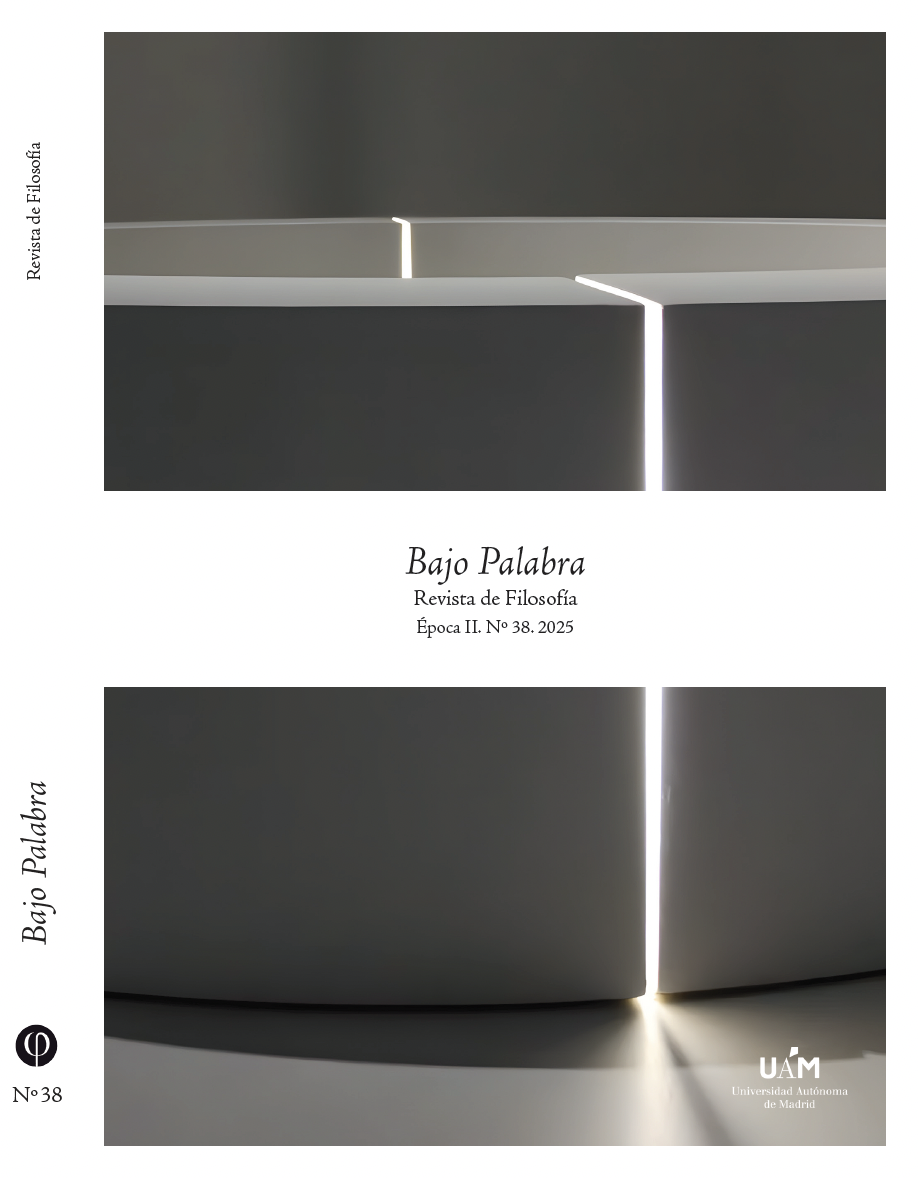Palavras-chave:
Nietzsche, Estado, política, distancia, diferencia, duplicidadCopyright (c) 2025 Michèle Cohen-Halimi

Este trabalho está licenciado sob uma licença Creative Commons Attribution 4.0 International License.
Resumo
Desde Humano, demasiado humano,
I, § 472, Nietzsche predice la “muerte
del Estado” como consecuencia inevitable de la “muerte de Dios”. Después de
haber recogido los últimos destellos del
Dios moribundo, el Estado desaparecerá a su vez. De ese modo, se anuncia un
nihilismo agravado que caracterizará la
hegemonía exclusiva del valor de cambio
en un mundo totalmente absorbido y nivelado por el capitalismo internacionalizado. Pero como reverso de ese sombrío
diagnóstico se encuentra la posibilidad
de “una invención aún más adaptada que
el Estado”. Tras abandonar, en 1876, la
perspectiva micropolítica que había desarrollado con Wagner, cuyos peligros le
había revelado el wagnerismo, Nietzsche
dedicó casi diez años —hasta Más allá del
bien y del mal— a desarrollar una nueva perspectiva, macropolítica esta vez.
Esto le llevó a analizar en profundidad
la naturaleza de lo que llamamos “vínculo social”, que sustituyó por un agudo
sentido de la diferencia irreductible entre
los sujetos políticos, cuya igualdad solo
es válida si salvaguarda la no-determinación de las identidades. El “páthos de la
distancia” es el oxímoron que crea Nietzsche para pensar el “entre” de la interrelación de sujetos políticos iguales, pero
no idénticos. Y esta invención quizá sea
capaz de abrir hoy un nuevo horizonte a
la reflexión política.
Downloads
Referências
Benjamin, W., “Les Affinités électives de Goethe”, en Œuvres, I, trad. de M. de
Gandillac y R. Rochlitz, París, Gallimard, 2000.
Birnbaum, A., Nietzsche. Les aventures de l’héroïsme, París, Payot, 2000.
Burckhardt, J., Histoire de la civilisation grecque, vol. IV, trad. fr. de F. Mugler,
Vevey, Éd. de l’Aire, 2001.
Claudel, P., Œuvres en prose, París, Gallimard, Bibliothèque de la Pléiade, 1965.
Deleuze, G., Le Bergsonisme, París, PUF, 1968.
Derrida, J., Éperons. Les styles de Nietzsche, París, Flammarion, 1978.
Faye, J.-P., L’Europe une. Les philosophes et l’Europe, París, Gallimard, 1992.
Foucault, M., Nietzsche. Cours, conférences et travaux, París, EHESS/Gallimard/
Seuil, 2024.
Foucault, M., Dits et écrits, vol. I, 1954-1969, París, Gallimard, 1994.
Goethe, J. W., Las affinités électives, trad. fr. de P. du Colombier, París, Gallimard, 1980.
Kant, I., Crítica de la razón pura, trad. fr. de A. Renaut, París, Flammarion, colección “GF”, 2001.
Kant, I., Anthropologie du point de vue pragmatique, trad. fr. de A. Renaut, París,
Flammarion, colección “GF”, 1993.
Leenhardt, M., La personne et le mythe dans le monde mélanésien, París, Gallimard, 1971.
Loraux, N., “La main d’Antigone”, en Mètis, nº 1, 1986.
Loraux, N., “Notes sur l’un, le deux et le multiple”, en M. Abensour (éd.), L’Esprit des lois sauvages, París, Le Seuil, 1987.
Lucet, A., Communauté et révolution chez Gustav Landauer, París, Klincksieck,
Kafka, F., Œuvres complètes, París, Gallimard, Bibliothèque de la Pléiade, 1976.
Merleau-Ponty, M., Le visible et l’invisible, París, Gallimard, 1964.
Milner, J.-C., L’universel en éclats. Court traité politique 3, Lagrasse, Verdier,
Nietzsche, F., La génealogie de la morale, I, trad. de P. Wotling, París, Librairie
Générale Française, 2000.
Stein, G., Autobiographie de tout le monde, trad. de M.-F. de Paloméra, París,
Seuil, 1978.
Stern, F., Politique et désespoir. Les ressentiments contre la modernité dans l’Allemagne pré-hitlérienne, trad. de C. Malamoud, París, Armand Colin, 1990.

